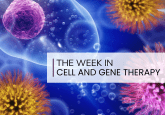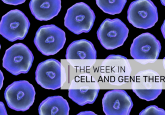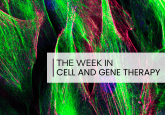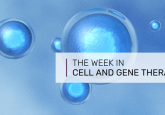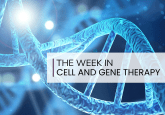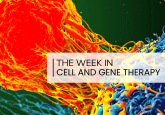Cell therapy weekly: The Maryland Stem Cell Research Commission allocates US$4 million in grants to drive stem cell innovations

This week: The third Elaine Redding Brinster Prize was awarded to Stuart Orkin for the development of a therapy for sickle cell disease, two leading CRISPR gene editing companies have entered a global distribution agreement and The Maryland Stem Cell Research Commission (MD, USA) has awarded US$4 million in grants to drive stem cell innovations.
The news highlights:
- The Maryland Stem Cell Research Commission allocates US$4 million in grants to drive stem cell innovations
- Third Elaine Redding Brinster Prize awarded for development of sickle cell disease therapy
- Integrated DNA Technologies and Aldevron enter strategic partnership to deliver CRISPR products for cell and gene therapy developers
The Maryland Stem Cell Research Commission allocates US$4 million in grants to drive stem cell innovations
The MSCRC, a body that identifies and supports cutting-edge research and innovation in regenerative medicine, has awarded US$4 million in grants to 12 scientists from a range of Maryland-based academic institutions and companies. The grants foster research that will bolster the development of treatments for a range of illnesses, including those affecting the liver, heart, immune system and nervous system.
Ruchika Nijhara, Executive Director of the MSCRC, stated, “We recognize that consistent funding plays a pivotal role in the development of affordable, life-changing therapies. We remain steadfast in our commitment to providing vital support to researchers and companies across Maryland as they work to realize the potential of their groundbreaking stem cell-based discoveries and transformative therapies, reshaping the future of medicine.”
Third Elaine Redding Brinster Prize awarded for development of sickle cell disease therapy
The Institute for Regenerative Medicine at the University of Pennsylvania (PA, USA) has awarded the Elaine Redding Brinster Prize in Science or Medicine to Stuart Orkin. The prize was awarded for Orkin’s work in elucidating hemoglobin gene switching and the application of this understanding to the development of a gene therapy for sickle cell disease and other β-hemoglobinopathies.
“Dr. Orkin has beautifully illustrated how a career of basic science investigation into the mechanisms for gene regulation can be applied, in one’s own laboratory, to a method for combating devastating human diseases. Notably, his discovery of unexpected details in how the fetal hemoglobin gene is regulated suggested insights for a therapy, for which he availed of the latest gene editing technologies to develop a specific clinical application for sickle cell disease,” said Ken Zaret, director of Penn’s Institute for Regenerative Medicine and the Joseph Leidy Professor at the Perelman School of Medicine.
Integrated DNA Technologies and Aldevron enter strategic partnership to deliver CRISPR products for cell and gene therapy developers
Integrated DNA Technologies (IDT; IA, USA) and Aldevron (ND, USA), two leading CRISPR gene editing companies, have entered into a global distribution agreement. Under the agreement, Aldevron will manufacture three Research Use Only and current Good Manufacturing Practice CRISPR nucleases with unique performance characteristics that IDT will distribute to cell and gene therapy producers to achieve accelerated paths to the clinic.
“Successful clinical translation requires high quality reagents and consistent performance from proof-of-concept through patient dosing. We are thrilled to partner with IDT and bring together their expertise in CRISPR chemistry and oligo production with Aldevron expertise in cGMP CRISPR nuclease and ribonucleoprotein (RNP) manufacturing,” said Tom Foti, President of Aldevron’s Protein Business Unit. “By combining manufacturing strengths, from day one, IDT clients now can access Aldevron CRISPR proteins which are designed for clinical translation.”
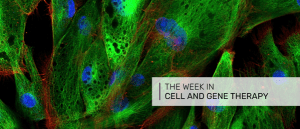 Last weeks news in cell therapy
Last weeks news in cell therapy
Lynch Regenerative Medicine, Inc. launched, FibroBiologics dedicated its new lab to the development of cell therapies and MaaT Pharma and Skyepharma completed construction of a microbiome therapy manufacturing facility.
